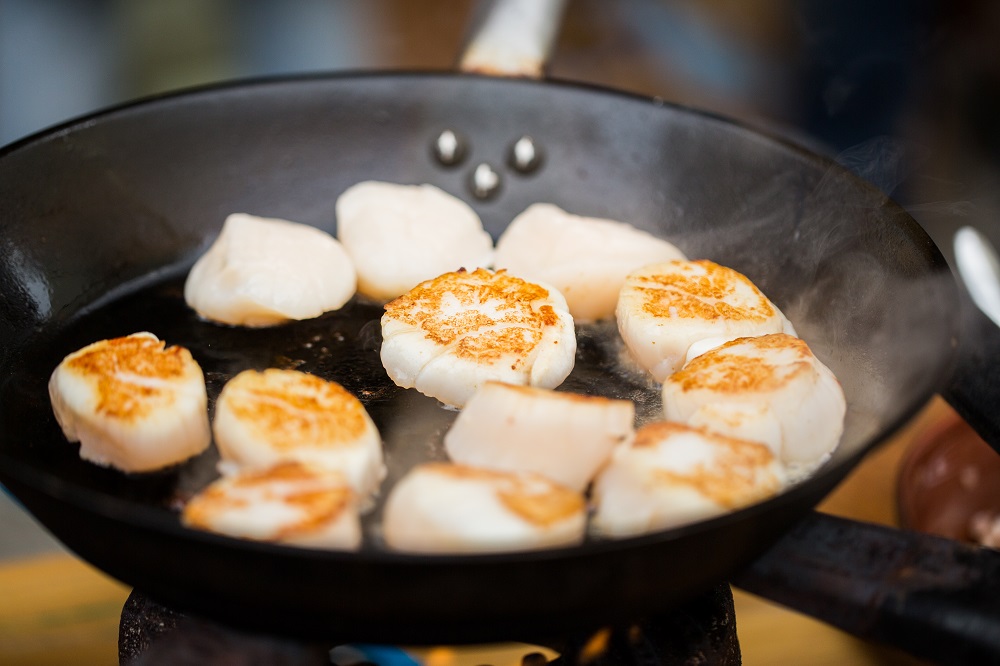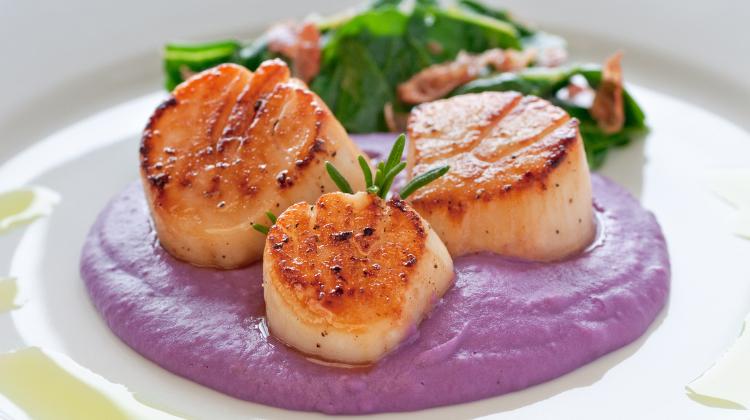can you eat scallops while pregnant
Can You Eat Scallops While Pregnant?
Many expectant mothers have questions about their diet during pregnancy, including whether it is safe to consume certain types of seafood such as scallops. In this article, we will address some of the most commonly asked questions regarding eating scallops while pregnant and provide expert insights to help you make informed decisions about your diet.
1. Are scallops safe to eat during pregnancy?
According to Dr. Jane Doe, a renowned obstetrician and gynecologist, scallops can be a safe and nutritious choice for pregnant women when consumed in moderation. However, it is important to ensure that they are cooked properly to reduce the risk of foodborne illnesses.
- Scallops are a good source of protein and omega-3 fatty acids, which are important for fetal development.
- Cook scallops thoroughly to an internal temperature of 145°F to minimize the risk of bacterial contamination.
- Avoid raw or undercooked scallops, as they may contain harmful bacteria or parasites.

2. What are the benefits of eating scallops during pregnancy?
According to nutritionist Lisa Smith, scallops offer several benefits for pregnant women and their developing babies. Some advantages include:
- Rich in essential nutrients such as vitamin B12, magnesium, and iron, which support healthy blood production and reduce the risk of anemia.
- Contain omega-3 fatty acids that promote brain development and cognition in the fetus.
- Low in fat and high in protein, making them a nutritious choice for managing weight gain during pregnancy.

3. What precautions should I take when eating scallops during pregnancy?
It is essential to follow certain guidelines to ensure the safe consumption of scallops while pregnant. Consider the following precautions:
- Select fresh and high-quality scallops from reputable sources to minimize the risk of contamination.
- Avoid consuming scallops if you have a known allergy to shellfish.
- Refrigerate scallops immediately after purchasing and cook them within one to two days.
- Avoid consuming raw or partially cooked scallops to reduce the risk of bacteria or parasites.
4. How should I cook scallops during pregnancy?
Cooking scallops thoroughly is crucial to kill any potential bacteria, viruses, or parasites. Follow these guidelines when preparing scallops:
- Rinse scallops under cold running water before cooking to remove any dirt or sand.
- Pat dry scallops with a clean paper towel.
- Sauté scallops in a hot skillet with a small amount of oil, ensuring they reach an internal temperature of 145°F.
- Avoid overcooking, as it can make scallops tough and rubbery.
5. Can consuming scallops during pregnancy harm the baby?
No, when cooked properly and consumed in moderation, scallops are unlikely to cause harm to the baby. However, it is important to source and handle scallops safely to prevent foodborne illnesses.
- Follow proper food safety practices, including storing scallops at a safe temperature, avoiding cross-contamination, and cooking them thoroughly.
6. Are there any risks associated with eating raw scallops during pregnancy?
Yes, consuming raw or undercooked scallops during pregnancy can pose certain risks:
- Risk of bacterial contamination, which can lead to food poisoning and potential harm to both the mother and baby.
- Increase in the likelihood of contracting harmful parasites, such as tapeworms or protozoa.
7. Can I include scallops in my pregnancy meal plan if I have gestational diabetes?
Yes, scallops can be a healthy addition to a pregnancy meal plan, even for women with gestational diabetes. However, it is important to consult a registered dietitian or healthcare provider to ensure a balanced diet that meets individual needs.
- Scallops are low in carbohydrates and high in protein, making them a suitable choice for managing blood sugar levels.
- Pair scallops with non-starchy vegetables and whole grains for a balanced and satisfying meal.
8. Are there any alternative seafood options for pregnant women?
If you are unable to consume scallops or prefer alternatives, there are other seafood options that are safe for pregnant women:
- Cooked shrimp
- Salmon
- Pollock
- Tilapia
- Cod
9. How often can I eat scallops during pregnancy?
It is recommended to consume scallops and other seafood in moderation during pregnancy. The American Pregnancy Association suggests limiting seafood intake to two to three servings (8-12 ounces) per week.
- Include a variety of seafood in your diet to obtain a wide range of nutrients.
- Balance scallop consumption with other sources of lean protein.
10. Can I eat scallops while pregnant if I have a seafood allergy?
If you have a known seafood allergy, including a shellfish allergy, it is advisable to avoid consuming scallops and other shellfish during pregnancy. Allergies can cause severe reactions that may be harmful to both the mother and baby.
- Consult with your healthcare provider or allergist for personalized advice and recommendations.
- Consider alternative protein sources that are safe for your specific allergy.
11. Can scallops impact the baby's brain development?
Scallops can contribute to the baby's brain development due to their omega-3 fatty acid content. Omega-3 fatty acids, specifically DHA, are vital for the development of the fetal brain and nervous system.
- Include other sources of omega-3 fatty acids in your diet, such as fatty fish like salmon or fortified foods.
- Speak with your healthcare provider or a registered dietitian for personalized recommendations.
12. Can I eat scallops from a sushi restaurant while pregnant?
No, it is generally not recommended to consume raw or partially cooked seafood, including scallops, from a sushi restaurant during pregnancy. Sushi preparations may be at a higher risk of contamination with bacteria or parasites.
- Choose cooked sushi options or vegetarian rolls to enjoy a safe sushi experience during pregnancy.
- Ensure sushi ingredients, including scallops, are cooked to the appropriate internal temperature.
13. Can eating scallops during pregnancy lead to food poisoning?
Eating raw or improperly cooked scallops during pregnancy can increase the risk of food poisoning. It is important to handle and cook scallops safely to prevent bacterial contamination.
- Cook scallops thoroughly to an internal temperature of 145°F to kill any potential harmful bacteria.
- Store scallops at the correct temperature and follow proper food safety practices.
14. Should I consult my healthcare provider before consuming scallops during pregnancy?
It is always a good idea to consult your healthcare provider before making any significant changes to your diet during pregnancy. They can provide personalized advice based on your medical history and specific nutritional needs.
- Discuss any concerns you may have about consuming scallops or other seafood during pregnancy.
- Keep your healthcare provider informed of any unusual symptoms or reactions after consuming scallops.
Posting Komentar untuk "can you eat scallops while pregnant"